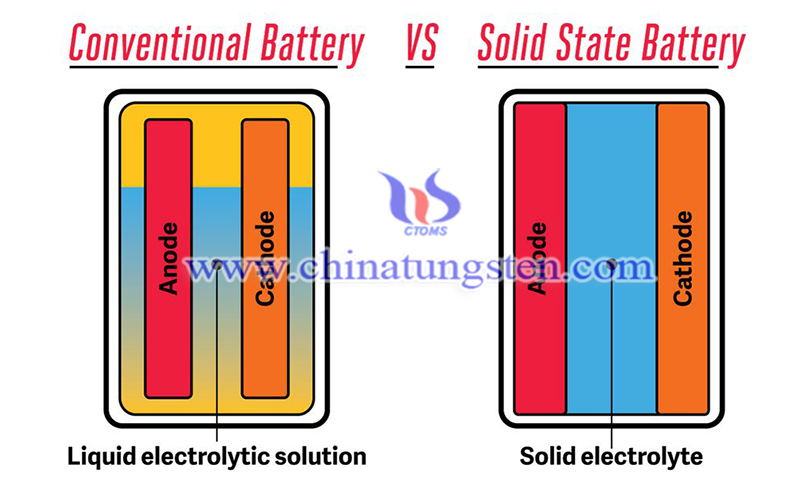Researchers Reveal Phase Evolution Process of MoS2 Prenucleator in Lithium Batteries
- Details
- Category: Tungsten's News
- Published on Tuesday, 29 September 2020 20:14
The team led by Professor Xueliang Sun of the University of Western Ontario (UWO) and Professor Chandra Veer Singh of the University of Toronto clarified the phase evolution of a prenucleator (MoS2) in all-solid-state lithium batteries (ASSLBs) for promoting fast Li nucleation and selective Li deposition. A paper on their work is published in the journal Advanced Energy Materials.
Solid polymer electrolytes (SPEs) have demonstrated their potential application in ASSLBs due to their promising properties such as high flexibility, easy fabrication, low cost/density, and high electrochemical/chemical stability. However, undesirable lithium dendrite growth under high current densities because of the nonuniform lithium nucleation and growth has significantly hindered the development of high‐rate ASSLBs.

The researchers said that in the operating ASSLB battery, the lithium prenucleator (MoS2) is shown in working ASSLBs that renders a highly active nucleator (Mo), where molybdenum promotes fast Li nucleation and Li dendrite suppression. During the lithium plating process, lithium and molybdenum exhibit a strong affinity, leading to rapid nucleation of lithium and selective deposition on the molybdenum surface with a larger specific surface area, reducing the local current density.
In addition, fast diffusion of Li atom on Mo (110) surface promotes uniform Li deposition and limits the Li dendrite growth. Benefitting from the reduced local current density as well as the improved Li dendrite suppression, Li-Li symmetric cells within MoS2 prenucleator demonstrate excellent electrochemical performance, achieving cycle lifetimes as high as 1000 h for 1 mA cm-2/1 mAh cm-2 and 780 h for 0.5 mA cm-2/2 mAh cm-2.
Li-LiFePO4 (LFP) full battery test further proves its practical application potential. The Li-LFP ASSLB battery has a high current density of 1 mA cm-2 after 3000 cycles, showing a high capacity retention capacity of 78%.
ASSLB battery is only expected to be put into the practical application under reasonable current density. However, under high current density, poor growth of lithium dendrites in lithium batteries will hinder the increase in operating current density, which is still a challenge. In general, the current densities used in Li-Li symmetric cells and full cells are less than 0.5 mA cm-2, which can’t meet the requirements of ASSLBs in practical application.

The results show that the reduction product (Mo) is the true nucleator, which plays an important role in facilitating Li fast nucleator and selective deposition, thus suppressing lithium dendrite growth.
The lithium anode in lithium batteries with MoS2 prenucleator show reduced overpotential and improved Li stability, enabling the assembled ASSLBs with excellent cycling stability under high current density.
| Molybdenum Supplier: Chinatungsten Online www.molybdenum.com.cn | Tel.: 86 592 5129696; Fax: 86 592 5129797;Email:sales@chinatungsten.com |
| Tungsten News & Prices, 3G Version: http://3g.chinatungsten.com | Molybdenum News & Molybdenum Price: http://news.molybdenum.com.cn |



 sales@chinatungsten.com
sales@chinatungsten.com